Cardiovascular Physiology
Cardiovascular physiology is the study of the functioning of the cardiovascular system, which includes the heart, blood vessels, and blood. Understanding cardiovascular physiology is important for comprehending how the body maintains blood flow, blood pressure, and the delivery of oxygen and nutrients to tissues.
Key Concepts in Cardiovascular Physiology
- Heart Function: The heart is a muscular organ responsible for pumping blood throughout the body. It consists of four chambers - two atria and two ventricles. The contraction and relaxation of these chambers facilitate the flow of blood through the cardiovascular system.
- Blood Vessels: Blood vessels, including arteries, veins, and capillaries, are responsible for transporting blood to and from the heart, as well as to various tissues and organs in the body. The structure and function of these vessels play a crucial role in regulating blood pressure and blood flow.
- Blood Composition and Function: Blood is composed of red blood cells, white blood cells, platelets, and plasma. Each component has specific functions, such as oxygen transport (red blood cells), immune response (white blood cells), and blood clotting (platelets).
- Regulation of Cardiovascular Function: The cardiovascular system is tightly regulated by various mechanisms, including neural, hormonal, and local control. These mechanisms help maintain blood pressure, adjust cardiac output, and distribute blood flow based on the body's needs.
- Cardiovascular Pathophysiology: Understanding how the cardiovascular system malfunctions is crucial for diagnosing and treating cardiovascular diseases, such as hypertension, coronary artery disease, heart failure, and arrhythmias.
Study Guide
When studying cardiovascular physiology, it's important to focus on the following key areas:
- Understanding the structure and function of the heart, including the cardiac cycle, electrical conduction system, and cardiac output.
- Exploring the anatomy and physiology of blood vessels, including their role in blood distribution, blood pressure regulation, and exchange of nutrients and gases.
- Learning about the composition of blood and its role in gas exchange, nutrient transport, immune response, and clotting mechanisms.
- Examining the regulatory mechanisms that control cardiovascular function, such as the autonomic nervous system, hormonal regulation, and local control of blood flow.
- Understanding common cardiovascular disorders, their causes, symptoms, and potential treatment options.
By mastering these concepts, students can gain a comprehensive understanding of cardiovascular physiology and its importance in maintaining overall health and well-being.
[Cardiovascular Physiology] Related Worksheets and Study Guides:
.◂Biology Worksheets and Study Guides High School. Genetics and heredity II
Worksheet/Answer key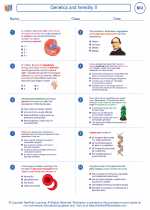 Genetics and heredity II
Genetics and heredity II  Worksheet/Answer key
Worksheet/Answer key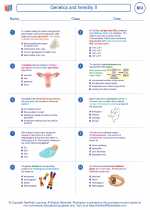 Genetics and heredity II
Genetics and heredity II  Worksheet/Answer key
Worksheet/Answer key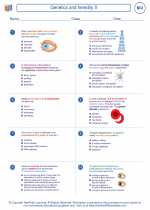 Genetics and heredity II
Genetics and heredity II  Vocabulary/Answer key
Vocabulary/Answer key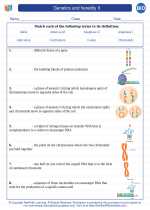 Genetics and heredity II
Genetics and heredity II  Vocabulary/Answer key
Vocabulary/Answer key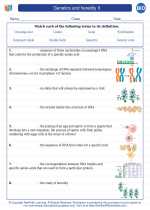 Genetics and heredity II
Genetics and heredity II  Vocabulary/Answer key
Vocabulary/Answer key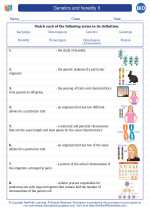 Genetics and heredity II
Genetics and heredity II  Vocabulary/Answer key
Vocabulary/Answer key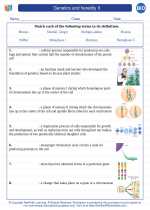 Genetics and heredity II
Genetics and heredity II  Vocabulary/Answer key
Vocabulary/Answer key Genetics and heredity II
Genetics and heredity II  Vocabulary/Answer key
Vocabulary/Answer key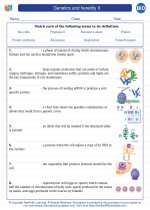 Genetics and heredity II
Genetics and heredity II  Vocabulary/Answer key
Vocabulary/Answer key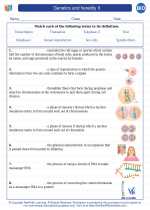 Genetics and heredity II
Genetics and heredity II 

 Worksheet/Answer key
Worksheet/Answer key
 Worksheet/Answer key
Worksheet/Answer key
 Vocabulary/Answer key
Vocabulary/Answer key
 Vocabulary/Answer key
Vocabulary/Answer key
 Vocabulary/Answer key
Vocabulary/Answer key
 Vocabulary/Answer key
Vocabulary/Answer key
 Vocabulary/Answer key
Vocabulary/Answer key
 Vocabulary/Answer key
Vocabulary/Answer key
 Vocabulary/Answer key
Vocabulary/Answer key

The resources above cover the following skills:
LIFE SCIENCE (NGSS)
Heredity: Inheritance and Variation of Traits
Students who demonstrate understanding can:
Ask questions to clarify relationships about the role of DNA and chromosomes in coding the instructions for characteristic traits passed from parents to offspring.